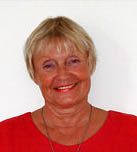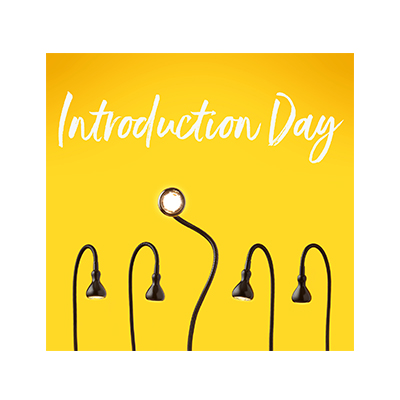Interview with Hoffman Graduate & Psychotherapist
Coming from a highly successful career in Management Consultancy, Sabine found herself increasingly intrigued by what made people tick, so in 1991 she decided to qualify as a psychotherapist. She is also a Supervisor and Group Facilitator with a Master’s Degree in Transpersonal Counselling and Psychotherapy. Additionally she offers other resources and trainings such as EMDR (trauma therapy) and Imago Relationship Therapy as well as presenting talks and workshops on co-dependency and addiction. Sabine did the Hoffman Process in August 1999 and since then has been the Hoffman teacher supervising therapist.
Self-Love, Connection and a Sense of Possibility
 Despite having done many years of personal therapy and countless self-development courses, trainings and spiritual retreats, I found the Process to be an extraordinary experience myself and I have the greatest love and admiration for it. I often refer clients to the course – it’s such a powerful resource for a therapist to be aware of. That works both ways, because Hoffman encourages people who might not yet be ready to do the Process to see a therapist for individual sessions. This can act as a bridge until they’re robust enough to do the course.
Despite having done many years of personal therapy and countless self-development courses, trainings and spiritual retreats, I found the Process to be an extraordinary experience myself and I have the greatest love and admiration for it. I often refer clients to the course – it’s such a powerful resource for a therapist to be aware of. That works both ways, because Hoffman encourages people who might not yet be ready to do the Process to see a therapist for individual sessions. This can act as a bridge until they’re robust enough to do the course.
I’ve seen some wonderful results with my own clients who come back from the Process much more open and excited about their life – they’re able to access a part of themselves which we can then use to make great strides forward in future sessions. Inevitably there’s a bit of a ‘honeymoon period’ after the Process and the initial euphoria does dissipate but I feel that one of my roles is to encourage them to keep that sense of self-love, connection and possibility which they return from the Process with.
Freedom From Co-Dependence
There is a saying: ‘turn up, speak your truth and let go of the consequences’ and in my opinion that’s what the Process allows people to do. For some it’s the first time that they feel safe enough to speak their truth and feel heard. Not only that, but to realise that they are not alone in their fears and insecurities. Speaking truthfully from the heart is something that they experience on the course and that they can practice with me when they come back. It helps relationships to become more authentic and to move towards freedom from co-dependence. In fact, I find that when clients return after the Process, they often want to come and work together with their partners in couples therapy.
The issues that everybody brings to therapy or the Process are, at bottom, always about relationships, whether it’s about your romantic relationship – or lack of one – your relationship with yourself, your parents, your children, friends or colleagues. That’s why I now specialise in relationships – I love to work with people who want to grow into authenticity and create, manifest and celebrate their life.
Reflection and Awareness

When you’re looking at your relationship dynamics there’s a quote from Life Transition Specialist and Author Bobbi Chegwyn which sums it up beautifully: ‘Your perception of me is a reflection of you. My reaction to you is an awareness of me’. I find that couples counselling is really a process of individual growth within the relationship. We look at how projections, transference and childhood wounding plays out between them. My Imago relationship work means that I also focus greatly on parenting. I’m always aware that any children within a relationship will be affected by the work that the couple is doing. I believe that parents are responsible to make that space a safe playground for their children where wounding lessens and healing can occur. If appropriate, I might advise parents to consult with a child specialist.
Preventative Medicine
In the past few years I feel that therapy has lost much of its old stigma. Men particularly were reluctant to see a therapist, but now when a couple start therapy it’s often the man who stays on to work individually once the couple’s work is over. A new trend I’ve noticed is that couples tend to come a few months after starting a relationship rather than treating therapy as A & E – something to try in an emergency and often as a last resort! It’s now used more as a preventative measure to help them achieve and maintain a high quality relationship and grow together in love.
In Your Vulnerability Lies Your Greatest Strength
It is important to understand that we can only ‘bring the worst of us from the best of us’. Sometimes it’s when you’re at your lowest ebb, feeling that everything is chaotic and you’re completely vulnerable that you’re able to access your core strength. You may feel too scared and think that you can’t cope with the Process but in so many ways it’s precisely that vulnerability that opens you to accept what it offers. Then you can come to the Process and look at the ‘worst’ in yourself with enough strength, love and compassion to heal it.
Sabine works with individuals, couples and groups and she can arrange tailor made intensives for clients from overseas and the UK – in English, German, French and Spanish. She is also an experienced EMDR practitioner and her real passion and expertise is working with couples as a Certified Advanced Imago Relationship Therapist and Consultant.
Visit her website: www.relationshiptherapylondon.co.uk






 Sign up to receive monthly newsletters from Hoffman
Sign up to receive monthly newsletters from Hoffman